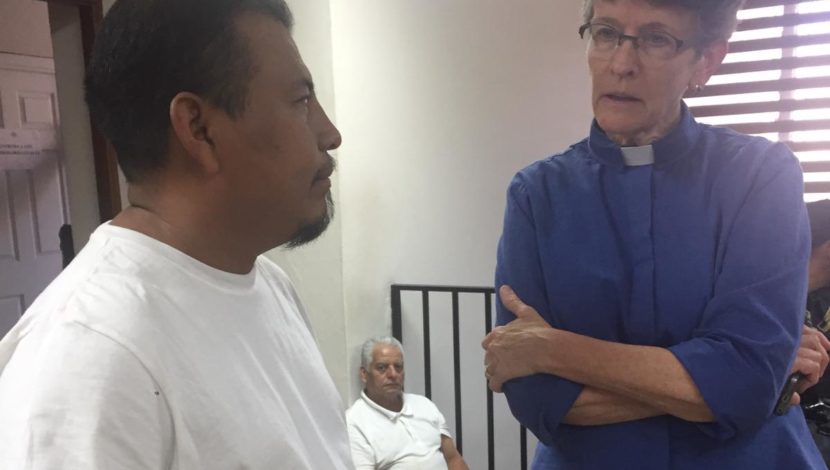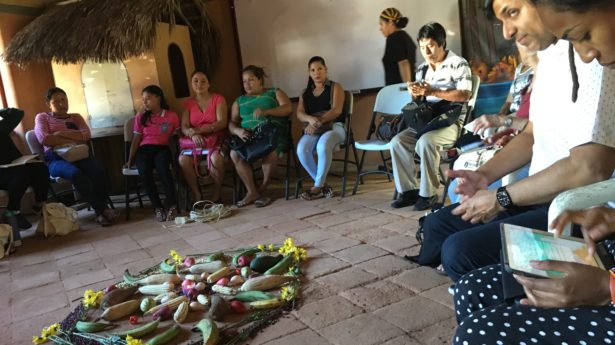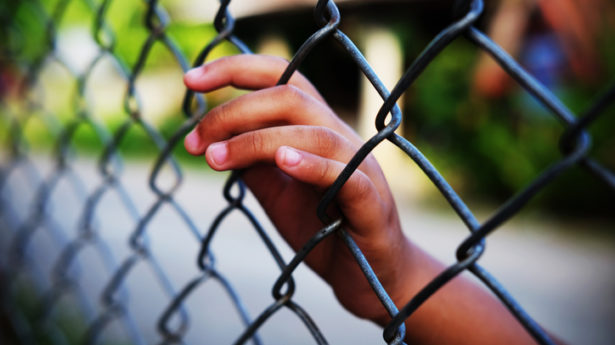The Unitarian Universalist Service Committee advances human rights through grassroots collaborations.
On Solidarity and Partnership: My Time Supporting the Guapinol 12

By on March 29, 2019
Throughout its nearly 80-year history of defending human rights, one of the most important things UUSC has done is to deliberately center the voices, stories, and strategies of grassroots groups. We have long called this an eye-to-eye partnership: a form of justice engagement that rests on the power and commitment of real relationships.
I had the immense honor of participating at a critical moment in such a partnership when I traveled to Honduras at the end of February. I traveled there in response to an urgent request from two UUSC partners, Radio Progreso and Foro de Mujeres por la Vida. Twelve environmental activists from the town of Guapinol, who have been trained and supported by these groups, had suddenly been arrested and charged with six felonies, including arson, robbery, and illicit association. The charges were a transparent bid to eliminate key leaders and intimidate their communities.
In Guapinol and throughout the fertile Aguan Valley of Honduras, the people have been struggling to protect their land and water from the depredations of mining and the theft of their rich farmland for massive palm oil corporations. One of the most damaging corporations is the Los Pinares Mining Company, which has opened mining concessions within the boundaries of a pristine national park—aided and abetted by the Honduran government. The lives and livelihoods of hundreds of communities depend on the pure waters of the rivers that flow there, which have already been visibly polluted by this corporation.
It is no small thing to be an activist in Honduras. When people make the simple demand that the government follow its own environmental procedures and laws, they are threatened and intimidated, beaten and arrested, driven from their homes, and even murdered for their activism. It is because of this history of extreme violence that international observers were asked to come to Honduras to accompany the Guapinol environmental activists – and I was privileged to be able to respond on UUSC’s behalf.
I spent many hours inside the courthouse with the prisoners, and outside in the streets with their worried families and the many activists from Radio Progreso and Foro de Mujeres, who kept up a continual vigil night and day. I witnessed the transparent lies told by the lawyers for the government and the mining company, and I listened in awe as a volunteer defense team patiently shredded the charges, point by point, over the course of four long days. And finally, I witnessed the extraordinary victory on March 5 when the case was won, all charges were dismissed, and the prisoners were set free into the jubilation and tears of their families.
The presence in that Tegucigalpa courtroom of a few international observers, and the media focus that UUSC and other groups kept on the trial, were absolutely pivotal to this victory. This is what it truly means to live out the values of an eye-to-eye partnership. It means the willingness to join our partners in their struggle over the long haul, so we come to know each other well and build real relationships. It means deep trust in our partners’ capacity, resilience, and strategies, knowing that they are experts in their own context and struggle. It means using our resources, not only in direct support for the partners on the ground, but to amplify their voices and help galvanize our constituents to action. And perhaps most important, eye-to-eye partnership means that whenever possible, we show up when our partners say, “Come.”
The verdict in the Guapinol case this month was a huge victory, but it’s also a fleeting one. Each of these brave activists has returned home to a context in which they continue to risk physical violence, kidnapping, and even death for their activism. That’s what makes it so important that we, who do not face such dangers in the daily walk of our lives, answer the call to be proximate, to come close, to live from the deep truth of our interdependence. Though we cannot all individually travel to places like Honduras and show up in person, we can each show up through our support of UUSC. There are moments—as in that tense Honduran courtroom—when the presence we support will make all the difference in the world.
Photo Credit: UUSC

